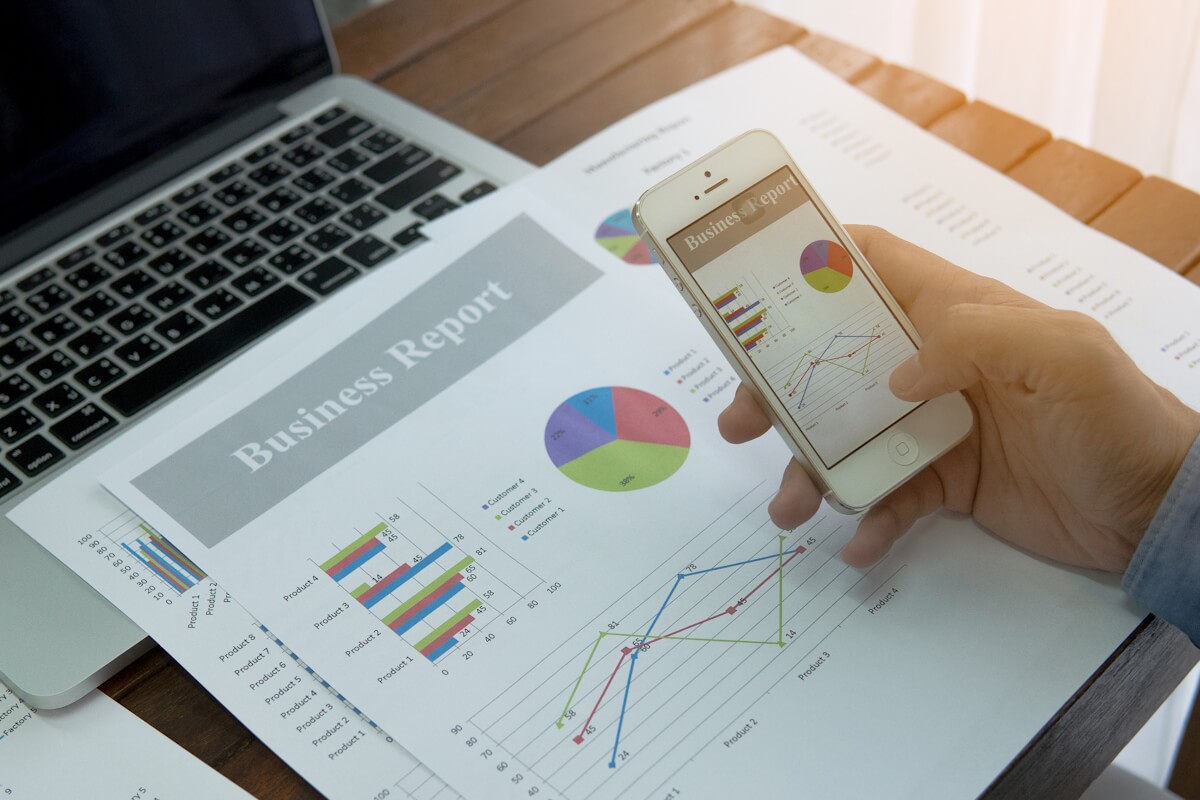In recent years, the intersection of big data and financial technology, or fintech, has become increasingly important. Fintech companies are leveraging big data to provide innovative solutions to traditional financial services, and iPhone apps are playing a significant role in this transformation. In this article, we will explore the role of big data in fintech iPhone apps, with a focus on trends emerging in San Francisco, one of the leading hubs for fintech innovation.
What is Big Data in Fintech?
Big data refers to the vast amount of structured and unstructured data that is generated by businesses and consumers on a daily basis. In the context of fintech, big data includes transactional data, user behavior data, social media data, and more. Fintech companies use big data to analyze patterns, trends, and insights that can help them make better decisions and deliver more personalized services to their customers.
Big data has revolutionized the way fintech companies operate by providing valuable insights that were previously unavailable. By leveraging big data, fintech companies can enhance their decision-making processes, streamline operations, and improve customer satisfaction.
Some key benefits of big data in fintech include improved risk management, enhanced fraud detection capabilities, and the ability to offer personalized recommendations to users based on their individual preferences and behaviors.
The use of big data in fintech is only expected to grow in the coming years, as companies continue to realize the significant advantages it brings to their operations and customer offerings.
The Role of Big Data in Fintech iPhone Apps
Fintech iPhone apps have become a popular way for consumers to manage their finances, invest, and make payments on the go. These apps rely on big data to provide a seamless user experience and offer personalized recommendations and insights to their users. Here are some key ways in which big data is shaping the future of fintech iPhone apps:
Personalized Recommendations
One of the biggest advantages of leveraging big data in fintech iPhone apps is the ability to provide personalized recommendations to users. By analyzing user behavior data and transactional data, fintech companies can offer tailored product recommendations, investment opportunities, and money-saving tips to their customers.
- By utilizing big data, fintech iPhone apps can analyze user preferences and behaviors to offer personalized financial advice, such as recommending investment opportunities that align with the user’s risk tolerance and financial goals.
- Personalized recommendations not only enhance the user experience but also increase user engagement and satisfaction, leading to higher customer retention rates.
- Fintech companies can use big data to track user interactions within the app and tailor recommendations based on their individual preferences, creating a more customized experience for each user.
Fraud Prevention
Big data plays a crucial role in fraud prevention for fintech companies. By analyzing patterns and anomalies in transactional data, fintech iPhone apps can detect and prevent fraudulent activities in real-time, ensuring the security of their users’ financial information.
- Fintech companies can use big data analytics to identify unusual patterns in user transactions and flag potentially fraudulent activities for further investigation.
- By leveraging machine learning algorithms, fintech iPhone apps can continuously improve their fraud detection capabilities and stay ahead of evolving fraud tactics.
- Real-time monitoring of transactional data allows fintech companies to respond quickly to potential threats and protect their users from financial fraud, enhancing trust and loyalty among customers.
Risk Management
Risk management is another area where big data is revolutionizing the fintech industry. By analyzing market trends, economic indicators, and user behavior data, fintech companies can assess and mitigate risks in real-time, helping them make more informed decisions and protect their customers’ investments.
- Big data enables fintech companies to proactively identify and assess potential risks, such as market fluctuations or regulatory changes, allowing them to adjust their strategies accordingly.
- By incorporating predictive analytics into their risk management processes, fintech companies can anticipate future challenges and develop proactive risk mitigation strategies to minimize potential losses.
- Real-time monitoring of risk indicators and data trends enables fintech companies to make agile decisions and adapt to changing market conditions, ensuring the long-term sustainability of their operations.
Customer Insights
Big data enables fintech companies to gain valuable insights into their customers’ behavior, preferences, and needs. By analyzing social media data, customer feedback, and transactional data, fintech iPhone apps can better understand their target audience and tailor their services to meet their customers’ expectations.
- Fintech companies can use big data analytics to identify trends and patterns in customer behavior, allowing them to create targeted marketing campaigns and personalized offerings that resonate with their audience.
- By analyzing customer feedback and sentiment data, fintech iPhone apps can gather valuable insights into user preferences and pain points, enabling them to improve their products and services to better meet customer needs.
- Real-time access to customer data and insights allows fintech companies to adapt quickly to changing customer preferences and market trends, ensuring they remain competitive in a rapidly evolving industry.
Trends from San Francisco
San Francisco is home to a vibrant fintech ecosystem, with a number of innovative companies leading the way in leveraging big data to transform the financial services industry. Some key trends emerging from San Francisco include:
- Blockchain Technology: San Francisco-based fintech companies are exploring the potential of blockchain technology to revolutionize the way financial transactions are conducted, offering greater security and transparency to users.
- AI and Machine Learning: Fintech companies in San Francisco are increasingly using artificial intelligence and machine learning algorithms to analyze big data, automate decision-making processes, and enhance the user experience of their iPhone apps.
- Regulatory Compliance: With the ever-changing regulatory landscape in the financial services industry, San Francisco fintech companies are investing in big data technologies to ensure compliance with local and international regulations, protecting both themselves and their customers.
San Francisco continues to be a hotbed of innovation in the fintech space, with companies pushing the boundaries of what is possible with big data and technology. As these trends continue to evolve, we can expect to see even more groundbreaking developments that will shape the future of financial services worldwide.
Conclusion
The role of big data in fintech iPhone apps is becoming increasingly important, with companies leveraging data analytics to provide personalized recommendations, prevent fraud, manage risks, and gain valuable customer insights. As trends continue to emerge from hubs like San Francisco, we can expect to see further innovations in the intersection of big data and fintech, shaping the future of financial services for years to come. Contact us today to start building your iOS app and be a part of this exciting revolution. The possibilities are endless, and the impact is immeasurable. So let’s take on this challenge together!
FAQs:
1. What is Big Data in Fintech?
Big data refers to the vast amount of structured and unstructured data that is generated by businesses and consumers on a daily basis. In the context of fintech, big data includes transactional data, user behavior data, social media data, and more. Fintech companies use big data to analyze patterns, trends, and insights that can help them make better decisions and deliver more personalized services to their customers.
2. How does Big Data play a role in fraud prevention for fintech iPhone apps?
Big data plays a crucial role in fraud prevention for fintech companies. By analyzing patterns and anomalies in transactional data, fintech iPhone apps can detect and prevent fraudulent activities in real-time, ensuring the security of their users’ financial information.
3. How does Big Data enable personalized recommendations in fintech iPhone apps?
One of the biggest advantages of leveraging big data in fintech iPhone apps is the ability to provide personalized recommendations to users. By analyzing user behavior data and transactional data, fintech companies can offer tailored product recommendations, investment opportunities, and money-saving tips to their customers.
4. In what ways does Big Data help in risk management for fintech companies?
Risk management is another area where big data is revolutionizing the fintech industry. By analyzing market trends, economic indicators, and user behavior data, fintech companies can assess and mitigate risks in real-time, helping them make more informed decisions and protect their customers’ investments.










